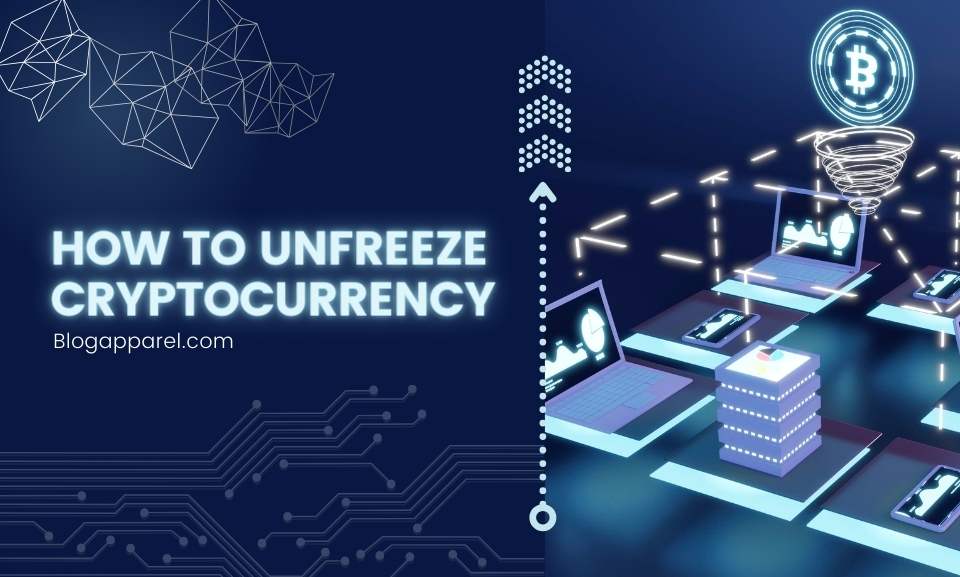Affiliate Policy Monitoring is an essential facet of digital marketing, ensuring that affiliate partners adhere to established guidelines and ethical standards. This process safeguards brand reputation, promotes transparency, and maximizes the efficacy of affiliate programs. By employing strategic monitoring techniques, businesses can detect and address compliance issues swiftly, fostering a trustworthy and mutually beneficial environment for both merchants and their affiliate networks. In the ever-evolving landscape of online marketing, diligent policy monitoring becomes crucial for maintaining the integrity and success of affiliate partnerships.
Affiliate Policy Monitoring is pivotal in steering the direction and integrity of affiliate marketing strategies, ensuring they align with a company’s core values and legal standards.
Purpose of Affiliate Policy Monitoring
The primary purpose of Affiliate Policy Monitoring is to ensure that all affiliate activities are in line with the company’s policies and ethical guidelines. This vigilance helps in preventing fraud, protecting brand image, and ensuring that marketing practices comply with legal requirements.
Importance of Monitoring Affiliate Policies
Monitoring affiliate policies is crucial for maintaining the credibility and trustworthiness of affiliate programs. It helps in identifying and mitigating risks associated with non-compliance, ensuring that the partnerships contribute positively to the brand’s reputation and bottom line.
Scope of Affiliate Policy Monitoring
The scope of Affiliate Policy Monitoring extends beyond mere compliance checks. It encompasses the analysis of marketing strategies, the enforcement of advertising guidelines, and the regular review of affiliate practices to ensure they evolve with changing regulations and market dynamics. This comprehensive approach ensures that affiliate programs remain practical, ethical, and aligned with business objectives.
Critical Components of Affiliate Policies
Affiliate Policy Monitoring ensures that affiliate programs operate within predetermined guidelines, protecting brand integrity and fostering transparent, mutually beneficial relationships.
Commission Structure
The commission structure is a cornerstone of affiliate agreements, defining the earnings an affiliate can expect from their promotional efforts.
- Percentage-based Commissions: These commissions are calculated as a percentage of the sale value, incentivizing affiliates to drive higher-value sales through their marketing channels.
- Fixed Fee Commissions: Affiliates earn a predetermined fee for each action completed, such as a sale or lead, providing a clear, straightforward incentive structure.
- Multi-tier Commissions: This model offers commissions not only on direct sales but also on the sales generated by affiliates recruited by the primary affiliate, encouraging the growth of the affiliate network.
Cookie Duration
Cookie duration plays a critical role in crediting sales to affiliates, affecting their earnings and strategy.
- Definition of Cookie Duration: Cookie duration refers to the time frame in which an affiliate can receive credit for a sale after a potential customer clicks on their referral link.
- Impact on Affiliate Sales: Longer cookie durations can significantly increase the likelihood of affiliates earning a commission, as customers may take time before making a purchase.
Prohibited Marketing Activities
Setting clear boundaries on marketing activities is essential for maintaining ethical standards and protecting the brand.
- Spamming: Prohibiting spamming ensures that affiliates use respectful and consent-based marketing tactics.
- Trademark Infringement: Affiliates are often restricted from using trademarks in a way that could confuse or deceive consumers, safeguarding brand identity.
- Unethical Promotional Tactics: Banning unethical promotional tactics, such as misleading claims, protects consumers and upholds the credibility of the affiliate program.
Through Affiliate Policy Monitoring, businesses can ensure these key components are adhered to, maintaining program integrity and effectiveness.
Monitoring Process
The Monitoring Process is crucial for the effective enforcement of affiliate policies, ensuring compliance and adapting to evolving marketing landscapes.
Identification of Key Policies
Identifying key policies sets the foundation for a successful affiliate policy monitoring strategy, ensuring all parties understand the rules.
- Reviewing Affiliate Agreements: Regularly reviewing affiliate agreements helps to clarify expectations and obligations, ensuring that all affiliates are aware of the policies they must follow.
- Communication with Affiliate Managers: Effective communication with affiliate managers facilitates a clear understanding of policies and any necessary adjustments to affiliate strategies.
Tracking Changes in Policies
Staying abreast of policy changes is essential for maintaining program integrity and affiliate compliance.
- Regular Review of Affiliate Terms: Scheduling regular reviews of affiliate terms allows for timely adjustments to strategies in response to policy changes.
- Notification Systems for Policy Updates: Implementing notification systems ensures that affiliates and managers are immediately informed of any changes to policies, promoting quick adaptation.
Compliance Monitoring
Monitoring compliance is critical to identifying and correcting deviations from established affiliate policies.
- Auditing Affiliate Marketing Activities: Conducting audits of affiliate marketing activities helps to detect any instances of non-compliance, allowing for timely corrective action.
- Addressing Non-Compliance Issues: Efficiently addressing non-compliance issues is critical for maintaining the integrity of the affiliate program and protecting the brand’s reputation.
Through these steps, Affiliate Policy Monitoring becomes a dynamic and proactive process essential for the success and sustainability of affiliate programs.
Tools and Technologies for Monitoring
Leveraging cutting-edge tools and technologies is essential for effective Affiliate Policy Monitoring, streamlining the process of ensuring compliance and facilitating policy enforcement.
Affiliate Management Platforms
These platforms offer comprehensive solutions for managing and monitoring affiliate programs with ease and efficiency.
- Features for Policy Tracking: Affiliate Management Platforms come equipped with features specifically designed for policy tracking, allowing for the easy identification and management of compliance issues.
- Reporting Capabilities: Enhanced reporting capabilities provide detailed insights into affiliate activities, enabling proactive management and decision-making based on real-time data.
Web Scraping and Monitoring Tools
These tools automate the monitoring process, significantly reducing the manual effort required to ensure policy adherence.
- Automated Policy Monitoring: Automated web scraping and monitoring tools continuously scan affiliate content, ensuring policies are being followed and identifying violations swiftly.
- Alert Systems for Policy Changes: Innovative alert systems notify users of policy changes or breaches, enabling quick responses to maintain compliance across all affiliate activities.
By incorporating these tools and technologies, businesses can optimize their Affiliate Policy Monitoring processes, ensuring that their affiliate programs operate within the bounds of agreed-upon policies and contribute positively to their marketing objectives.
Legal and Regulatory Considerations
Navigating the complex landscape of legal and regulatory considerations is crucial for maintaining a compliant and ethical affiliate program.
FTC Guidelines for Affiliate Marketing
The Federal Trade Commission (FTC) provides clear guidelines to ensure transparency and fairness in affiliate marketing practices.
- Disclosure Requirements: Affiliates must clearly disclose their relationships with advertisers, ensuring consumers are aware of the affiliate’s potential financial incentive in promoting products or services.
- Endorsement Guidelines: Endorsements must be honest and not misleading, reflecting the affiliate’s genuine experience or opinion of the advertised product or service.
GDPR and Data Privacy Compliance
The General Data Protection Regulation (GDPR) sets stringent requirements for handling personal data, impacting affiliate marketing practices significantly.
- Data Processing Agreements with Affiliates: Affiliates must enter into data processing agreements, ensuring that all parties adhere to GDPR standards when handling personal information.
- Consent Management for Tracking Technologies: Affiliate programs must implement consent management practices for tracking technologies, ensuring that users’ privacy preferences are respected and legally compliant.
Understanding and adhering to these legal and regulatory frameworks are essential for Affiliate Policy Monitoring, safeguarding against legal risks while fostering trust and transparency in affiliate marketing endeavours.
Risk Management and Mitigation Strategies
Effective risk management and mitigation strategies are fundamental to safeguarding the integrity of affiliate programs and ensuring long-term success.
Identification of Potential Risks
Recognizing potential risks is the first step towards protecting your affiliate program from possible harm.
- Non-Compliant Marketing Practices: Identifying affiliates who use misleading or non-compliant marketing tactics is crucial to maintaining trust and credibility.
- Violation of Data Privacy Regulations: Spotting potential breaches of data privacy laws helps prevent legal repercussions and protects consumer trust.
Mitigation Measures
Implementing proactive mitigation measures can significantly reduce the impact of identified risks.
- Training and Education for Affiliates: Providing comprehensive training and education for affiliates ensures they understand and comply with marketing and data privacy regulations.
- Enforcement of Compliance Policies: Strict enforcement of compliance policies through regular monitoring and taking corrective actions as necessary helps maintain program integrity and adherence to legal standards.
By prioritizing risk management and mitigation, affiliate programs can not only navigate challenges more effectively but also foster a responsible and compliant marketing environment.
Reporting and Analysis
Reporting and analysis are critical components for evaluating the effectiveness of Affiliate Policy Monitoring and guiding strategic improvements.
Metrics for Policy Compliance
Measuring policy compliance is essential for maintaining the integrity and effectiveness of affiliate programs.
- Tracking Violations and Non-Compliance Incidents: Regularly tracking and documenting incidents of non-compliance helps in understanding the extent of policy violations and the affiliates involved.
- Performance Impact of Policy Changes: Analyzing the performance impact of policy changes allows programs to assess the effectiveness of modifications and their influence on affiliate behaviour and program outcomes.
Trend Analysis and Insights
A deep dive into trend analysis provides actionable insights, aiding in the proactive management of affiliate programs.
- Identifying Patterns in Policy Violations: Identifying recurring patterns in policy violations assists in pinpointing systemic issues or specific areas that may require additional guidance or restructuring.
- Recommendations for Policy Improvements: Based on insights gathered, formulating recommendations for policy improvements can enhance compliance, optimize program performance, and mitigate future risks.
Through diligent reporting and analysis, Affiliate Policy Monitoring becomes a dynamic tool for continuous improvement, driving the strategic evolution of affiliate programs.
Best Practices for Affiliate Policy Monitoring
Adopting best practices for Affiliate Policy Monitoring ensures the sustainability and success of affiliate programs by fostering transparency and compliance.
Establishing Clear Communication Channels with Affiliates
Creating direct and open channels of communication with affiliates is crucial. This approach facilitates the prompt sharing of policy updates, feedback, and clarifications, ensuring that affiliates feel supported and informed.
Regular Training and Updates on Policy Changes
Implementing regular training sessions and updates on policy changes is essential for keeping affiliates up-to-date with the latest requirements and standards. This ongoing education helps prevent non-compliance and reinforces the importance of adherence to policies.
Collaboration with Legal and Compliance Teams
Working closely with legal and compliance teams enables the identification of potential risks and the development of effective strategies to address them. This collaboration ensures that affiliate policies remain aligned with current laws and regulations, safeguarding the program against legal challenges.
By integrating these best practices, companies can enhance the effectiveness of their Affiliate Policy Monitoring, promoting a culture of compliance and mutual respect within their affiliate networks.
Conclusion
Affiliate Policy Monitoring is a critical endeavour that ensures the integrity and success of affiliate marketing programs. By implementing robust monitoring practices, companies can safeguard their brand reputation, ensure compliance with regulations, and foster transparent, ethical partnerships. Embracing best practices and leveraging technology for effective monitoring will not only mitigate risks but also enhance the overall performance and sustainability of affiliate programs in the competitive digital marketing landscape.
FAQs
Are affiliate policies enforced?
Policies are enforced through regular audits, tracking systems for compliance, direct communication for guidance, and, if necessary, sanctions for non-compliance.
Can Affiliate Policy Monitoring affect an affiliate’s earnings?
Yes, adherence to policies can lead to more successful partnerships and potential bonuses, while violations might result in reduced commissions or termination from the program.
What tools are used in Affiliate Policy Monitoring?
Tools include affiliate management platforms, web scraping tools, compliance software, and data analysis programs to track, analyze, and report on affiliate activities.
How often should Affiliate Policy Monitoring be conducted?
Monitoring should be an ongoing process, with regular audits and assessments to adapt to new regulations and market changes, ensuring continuous compliance and program integrity














